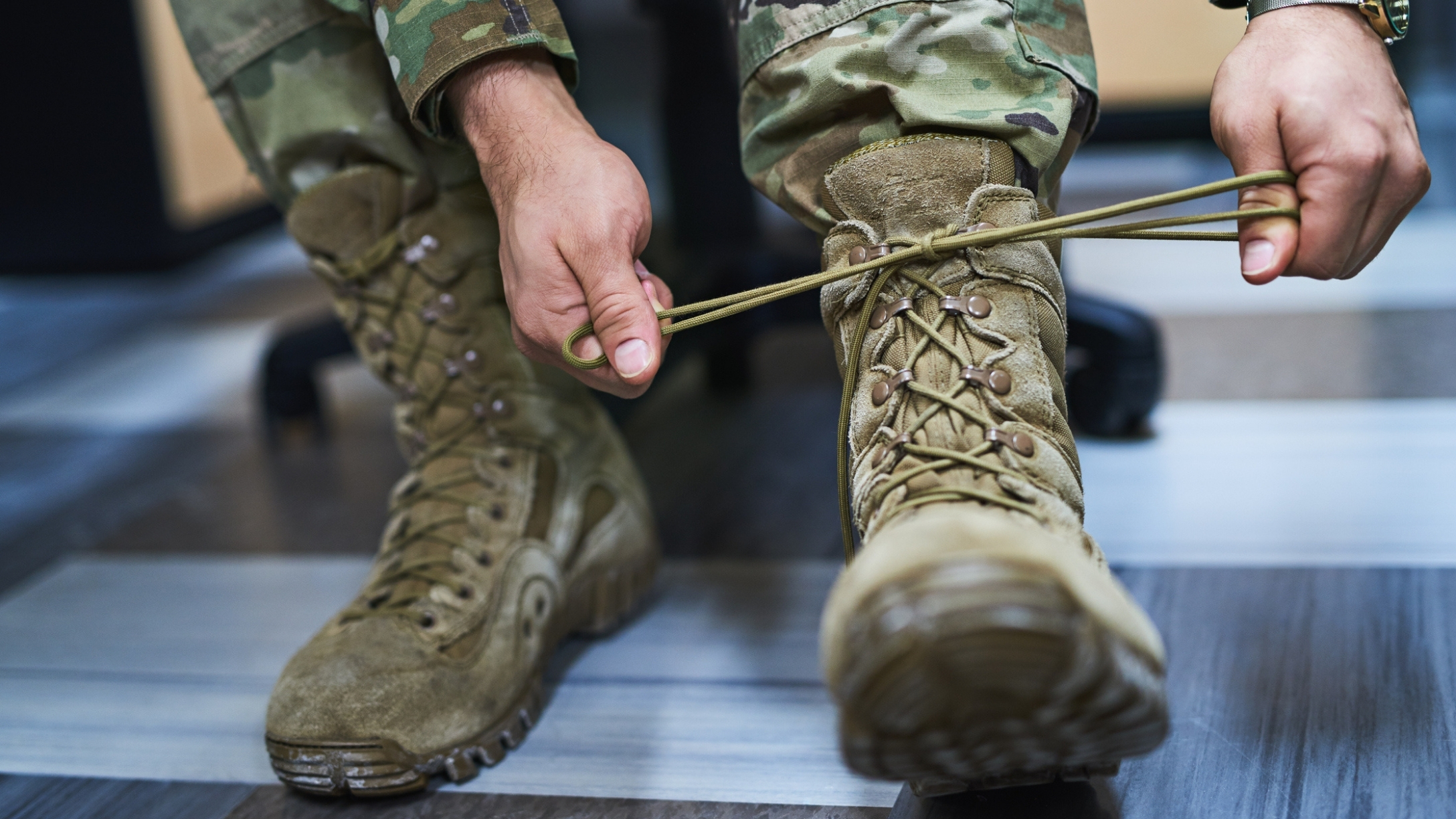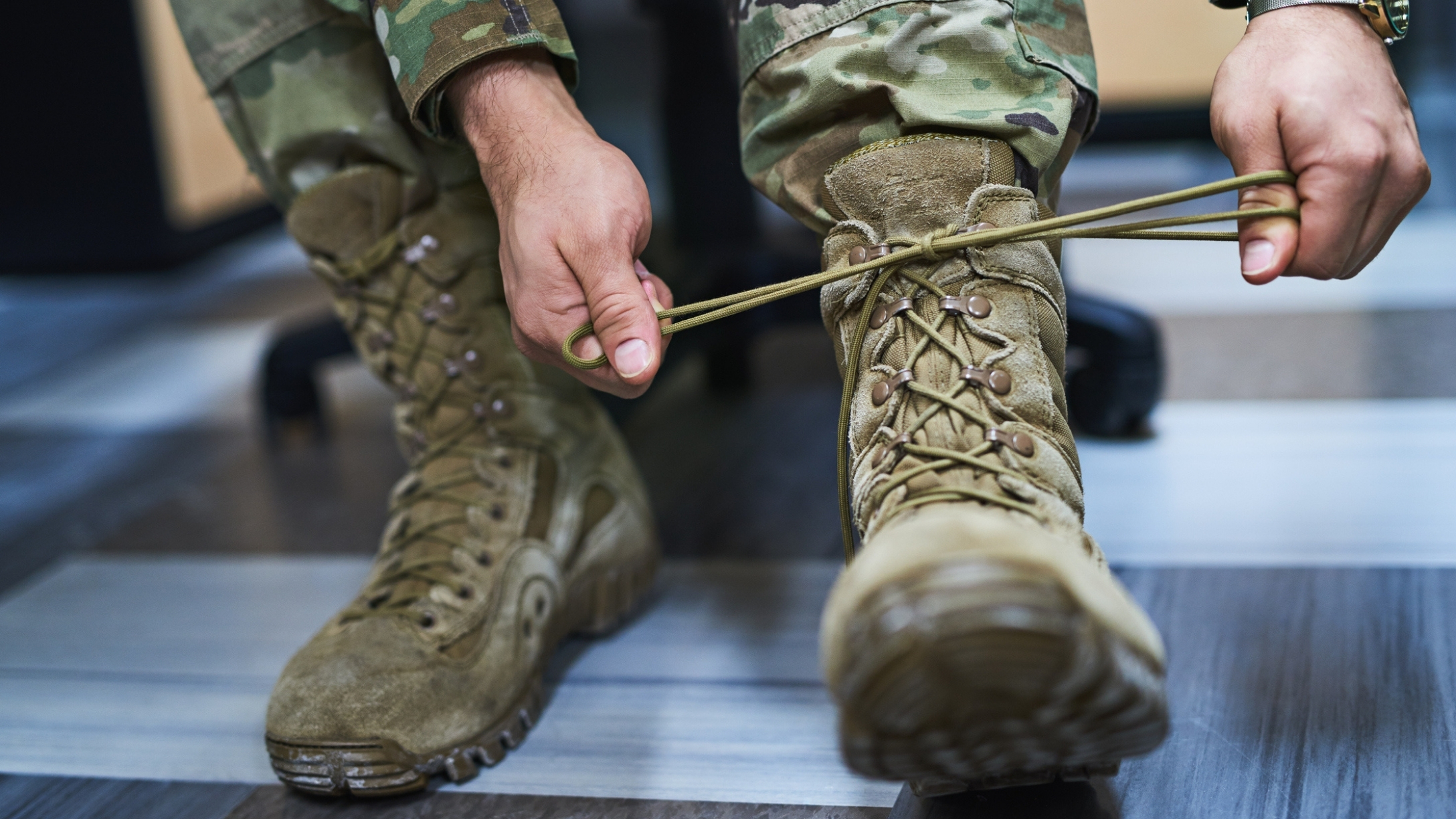
Family is embraced as a big part of the US military. Branches of service see their peers as members of a big family and they do what they can to take care of their own.
Yet for military academy students, family is pretty much a taboo concept. It's a fact that Melissa Hemphill is looking to shed light on. She's hoping to make the change by sharing her own experience when she got pregnant during her junior year at the US Air Force Academy. Melissa's boyfriend (now-husband) was also enrolled as a cadet, which presented some major issues.
As Melissa explains, the rules that govern the five US service academies — the Air Force, Naval, Military, Coast Guard, and Merchant Marine academies — forbid cadets and midshipmen from having dependents. While this limitation isn't imposed anywhere else in the military, it led to a complicated situation for a couple who wanted to finish preparing to serve their country while starting a family.
Melissa Hemphill was a junior at the US Air Force Academy when she learned she was pregnant with her first child. The pregnancy was unplanned and while Melissa and her boyfriend at the time were both cadets, they knew they wanted to move forward with the pregnancy. The problem is that cadets and midshipmen at the Air Force, Naval, Military, Coast Guard, and Merchant Marine academies are not permitted to have dependents.
Both Melissa and her now-husband Anthony Hemphill were determined to finish their studies and have their baby. The rules applied to both men and women, so both faced expulsion unless they took another avenue. They could continue with their studies if they fully relinquish their parental rights.
Melissa decided to finish her junior year and then drop out as the pregnancy progressed. Anthony would stay in school and graduate. When he was done, Melissa would go back and finish. And while that handled the educational aspect, there was still a lot of legal maneuvering necessary to make it happen.
Melissa could not go back to school with a dependent, so she would have to sign over full custody and rights of her child. Legally, Anthony would be a single parent while an active duty servicemember. With no other choices, they began what was a convoluted process that would cost them great financial and emotional stress.
When Melissa completed the academy, she and Anthony got married. Then, she began the complicated process of having to adopt her own child, having to jump through the same hurdles and check the same boxes as any other person adopting a child. While it was costly, it worked for the family.

For many parents, it wasn't such a smooth process, no matter what the plan was originally. Relationships would splinter in the time it took someone to finish school and re-adopt, leaving some academy graduates unable to regain rights to their children. Others would sign them over to family members who would then want them to meet requirements of their choosing before signing the children back over.
A new bill hopes to put the practice of requiring academy cadets to be free of dependents to end. The Candidates Afforded Dignity, Equality and Training (CADET) Act would prevent the academies from disenrolling cadets who become parents during their time at school. The bill is being championed by the unlikely duo of Sens. Ted Cruz and Kirsten Gillibrand.
The bill doesn't solve all the problems of the situation, but it covers many. The bill would allow cadets who become parents to temporarily name guardians for their children or grant full but temporary parental rights over to non-cadet parents, in line with the guidelines for single parents in the military for deployments or other periods of separation.




